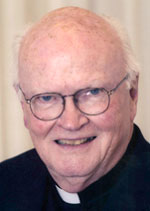The Rev. Martin Luther King Jr. once said, “If a man is called to be a street sweeper, he should sweep streets even as a Michelangelo painted or Beethoven composed music or Shakespeare wrote poetry. He should sweep streets so well that all the hosts of heaven and earth will pause to say, ‘Here lived a great street sweeper who did his job well.'”
The point that King was making and that is all too easily lost on most of us is this: There is a genuine vocation to what anyone in any organization is doing, to where you find yourself, top or bottom, in the world of work.
If you are doing your best to lead a good life, you are not a random fluctuation in some complex system of occupational distribution. You are a person who is known and cherished by a creator, God, who has something special for you in mind.
I share thoughts like these with college students at the beginning of every academic year and offer them here to any reader of this column who might be interested. Wherever you are at this moment of your life, try to see yourself as God sees you and has seen you from all eternity. You have a purpose.
[hotblock]
You, by simply willing it, can make God present in this world. You can make life better for others. You can do something with your life that aligns your life with God’s will for you. The integration of religious faith and your daily responsibilities will bring balance to your life. Just let it happen.
Let this awareness sink into your soul as moisture seeps into the earth. It will not happen right away or all at once.
Let these lines from Robert Frost’s poem “Snow” set the pace for the process of your personal assimilation of the conviction that you are called by God to be where you are and to do what you are doing. (If you are uncomfortable with where you are or what you are doing, make whatever move you have to in order to get yourself back on track.)
“Our very life depends on everything’s recurring till we answer from within. The thousandth time may prove the charm.”
Answers “from within” are wisdom principles. They rise from the depths of a personal faith-based spirituality. They can push themselves up through emotion, confusion, anger, pride — through any of the negatives that will close in on you from time to time.
Peace won’t come automatically or right away. It might take a while — “the thousandth time may prove the charm.” But when it happens, you have a spirituality up and running, ready to keep you on track and happy.
If this catches on in you, in those around you at work or school, you have the makings of a truly collaborative workplace where you interact with others and spend productive time.
Who can say where that will lead? Chances are it will lead to an environment where love prevails and needs are met, where human dignity is respected, and where God is acknowledged to be the source of all that is good.
***
Jesuit Father William J. Byron is university professor of business and society at St. Joseph’s University, Philadelphia. Email: wbyron@sju.edu.



Share this story